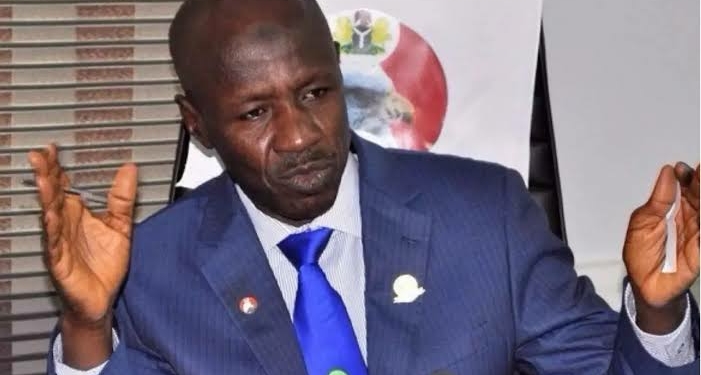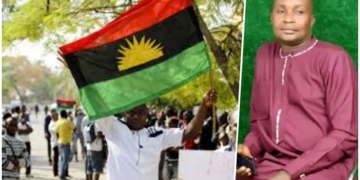The Economic and Financial Crimes Commission (EFCC) confirmed that it secured 890 convictions from cases prosecuted between January and October 2019.
The anti-graft agency said corruption had eaten deep into all sectors of the economy and had remained major challenge hindering Nigeria from attaining its potentials.
EFCC Boss, Ibrahim Magu, made this disclosure at a special town hall meeting on the fight against corruption organised by the Federal Ministry of Information and Culture and the National Orientation Agency (NOA) on Thursday in Abuja.
The EFCC Don disclosed that the number of Convictions was one of the highest in the world, saying it is not propaganda as it is open to verification by interested persons.
The EFCC chairman also said the commission recorded 103 convictions in 2015, 189 in 2016, 190 in 2017 and 202 in 2018.
He attributed the increase in 2019 to the support and activities of the Presidential Advisory Committee against Corruption (PACAC).
Magu said the opening of nine additional regional offices for wider outreach and collaboration with judges had also contributed to the increase in the number of convictions.
He said the assets recovery initiative of the Federal Government aimed at preventing corrupt persons from enjoying proceed of crimes had created an avenue to channel recovered fund into national development.
According to him, billions of naira had been recovered and channeled towards national development in this regard.
Magu said the fight against corruption was collective responsibility that could only be won through collective efforts.
“In the last four years, with the political will of President Muhammadu Buhari, we have embarked on enforcement and preventive measures against corruption with a view to tame the monster.
“With the preventive, enforcement and prosecution mandate given to the commission, all that is needed is the combination of courage, integrity and determination.
“Over the last four years, the EFCC has initiated various corruption prevention strategies targeted at the vulnerable segment of the population, children, youths and women with the delivery of anti corruption messages.
“The focus on corruption prevention is in the commission’s recognition that it is more cost effective to prevent corruption than to prosecute,” he said.
He said the anti corruption strategy was deliberately targeted at attracting direct investment into the country in view of its abundant human resources.
The Inspector General of Police (I-G), Mr Mohammed Adamu said the Nigerian Police Force pride itself as one of the best in the world professionally, in spite of negative public perception.
Adamu, represented by Mr Aminchi Baraya, the Deputy Inspector General (DIG) in charge of Supply and Logistics said the Force Headquartres had distinguished itself in peace keeping operations across the world, while charging Nigerians to condemn bribery and extortion.






Discussion about this post